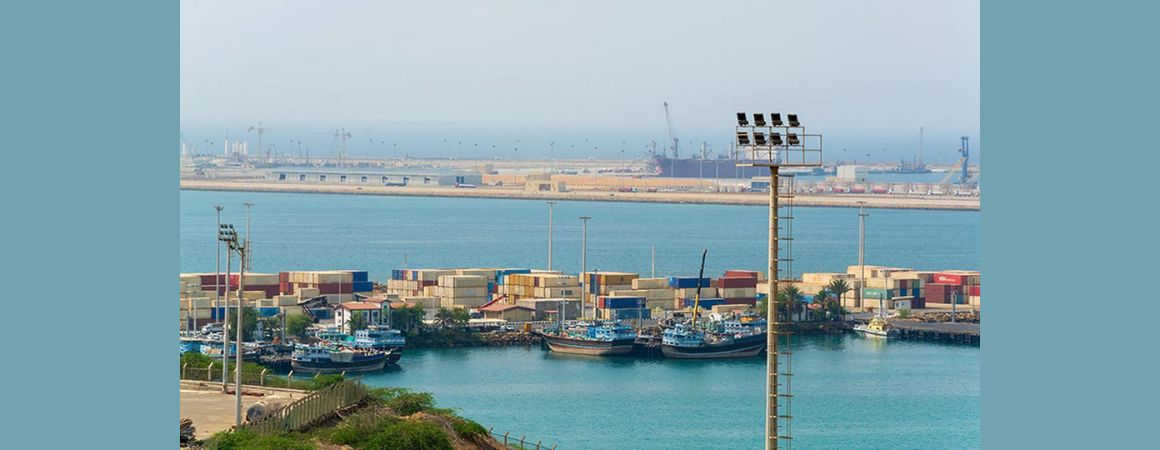Move will hamper India’s plans for regional connectivity, investment of over ₹200 crore in the project
In yet another harsh measure by the Trump administration, Secretary of State Marco Rubio announced on Thursday (September 18, 2025) that the U.S. was revoking its waiver of sanctions over the Iranian port of Chabahar, ending a special waiver given to India in 2018, within 10 days.
The decision, amongst a number of other moves by the U.S. to impose “maximum pressure on Iran”, including designating several entities involved in Iran’s oil trade, will affect India’s plans to develop the Shahid Beheshti terminal at the Chabahar port as an alternative trading route for India, circumventing Pakistan, to send cargo to Afghanistan and Central Asia. The Ministry of External Affairs (MEA) did not respond to requests for a comment on the development, which could severely hamper India’s plans for regional connectivity.
President Donald Trump had first announced he planned to end the waiver given to India in his previous term, on February 5 this year, as he signed an executive order mandating Mr. Rubio to “rescind or modify” all such orders that provided any relief to Iran.
“Consistent with President Trump’s maximum pressure policy to isolate the Iranian regime, the Secretary of State has revoked the sanctions exception issued in 2018 under the Iran Freedom and Counter-Proliferation Act (IFCA) for Afghanistan reconstruction assistance and economic development, effective September 29, 2025,” the State Department said in a statement.
“Once the revocation is effective, persons who operate the Chabahar port or engage in other activities described in the IFCA may expose themselves to sanctions under the IFCA,” it added.
Earlier this month, National Security Adviser (NSA) Ajit Doval had discussed intensifying India’s engagement with Iran on Chabahar during a conversation with Iranian SNSC Secretary Ali Larijani over the telephone. According to an Iranian official release issued in Tehran, Mr. Doval discussed “expanding cooperation in economic ties, security and defence relations, and advancing the Chabahar port project”, adding that the two sides would meet in Delhi soon.
Rise in vessel traffic
According to a note issued by the Shipping Ministry in 2024, India has spent about ₹200 crore of a total allocation of ₹400 crore on the Chabahar project since 2016. “The port recorded a 43% rise in vessel traffic and a 34% increase in container traffic in 2023-24,” the note said.
The imposition of sanctions on Chabahar is the fourth such round of sanctions the Trump administration has passed that directly affects India, and comes just days after the two sides had signalled a rapprochement on trade issues.
In 2017-18, India had conceded to the U.S.’ demand to end all oil imports from Iran and then from Venezuela. India has not so far agreed to cutting down its imports of oil from Russia this year, despite the U.S.’ demand and imposition of a penalty tariff of 25% on all Indian goods in addition to a 25% “reciprocal tariff” already in place.
The sanctions on Chabahar will cost India in terms of its investment in the Iranian port, for which the Modi government signed a 10-year lease agreement in May 2024. It could also hamper operations at the port, as more shippers, insurers and equipment suppliers stay away due to the sanctions. If India does bow to the U.S.’ demand to end its operations in Chabahar, this would mean damage to its ties with Iran, reputationally and strategically, as well as rupture India’s connectivity plans in the region, as Chabahar is due to be connected to the International North-South Transport Corridor (INSTC) that runs to Russia.
Chabahar operators to face U.S. sanctions from September 29
Move will hamper India’s plans for regional connectivity, investment of over ₹200 crore in the project
In yet another harsh measure by the Trump administration, Secretary of State Marco Rubio announced on Thursday (September 18, 2025) that the U.S. was revoking its waiver of sanctions over the Iranian port of Chabahar, ending a special waiver given to India in 2018, within 10 days.
The decision, amongst a number of other moves by the U.S. to impose “maximum pressure on Iran”, including designating several entities involved in Iran’s oil trade, will affect India’s plans to develop the Shahid Beheshti terminal at the Chabahar port as an alternative trading route for India, circumventing Pakistan, to send cargo to Afghanistan and Central Asia. The Ministry of External Affairs (MEA) did not respond to requests for a comment on the development, which could severely hamper India’s plans for regional connectivity.
President Donald Trump had first announced he planned to end the waiver given to India in his previous term, on February 5 this year, as he signed an executive order mandating Mr. Rubio to “rescind or modify” all such orders that provided any relief to Iran.
“Consistent with President Trump’s maximum pressure policy to isolate the Iranian regime, the Secretary of State has revoked the sanctions exception issued in 2018 under the Iran Freedom and Counter-Proliferation Act (IFCA) for Afghanistan reconstruction assistance and economic development, effective September 29, 2025,” the State Department said in a statement.
“Once the revocation is effective, persons who operate the Chabahar port or engage in other activities described in the IFCA may expose themselves to sanctions under the IFCA,” it added.
Earlier this month, National Security Adviser (NSA) Ajit Doval had discussed intensifying India’s engagement with Iran on Chabahar during a conversation with Iranian SNSC Secretary Ali Larijani over the telephone. According to an Iranian official release issued in Tehran, Mr. Doval discussed “expanding cooperation in economic ties, security and defence relations, and advancing the Chabahar port project”, adding that the two sides would meet in Delhi soon.
Rise in vessel traffic
According to a note issued by the Shipping Ministry in 2024, India has spent about ₹200 crore of a total allocation of ₹400 crore on the Chabahar project since 2016. “The port recorded a 43% rise in vessel traffic and a 34% increase in container traffic in 2023-24,” the note said.
The imposition of sanctions on Chabahar is the fourth such round of sanctions the Trump administration has passed that directly affects India, and comes just days after the two sides had signalled a rapprochement on trade issues.
In 2017-18, India had conceded to the U.S.’ demand to end all oil imports from Iran and then from Venezuela. India has not so far agreed to cutting down its imports of oil from Russia this year, despite the U.S.’ demand and imposition of a penalty tariff of 25% on all Indian goods in addition to a 25% “reciprocal tariff” already in place.
The sanctions on Chabahar will cost India in terms of its investment in the Iranian port, for which the Modi government signed a 10-year lease agreement in May 2024. It could also hamper operations at the port, as more shippers, insurers and equipment suppliers stay away due to the sanctions. If India does bow to the U.S.’ demand to end its operations in Chabahar, this would mean damage to its ties with Iran, reputationally and strategically, as well as rupture India’s connectivity plans in the region, as Chabahar is due to be connected to the International North-South Transport Corridor (INSTC) that runs to Russia.






NO COMMENT